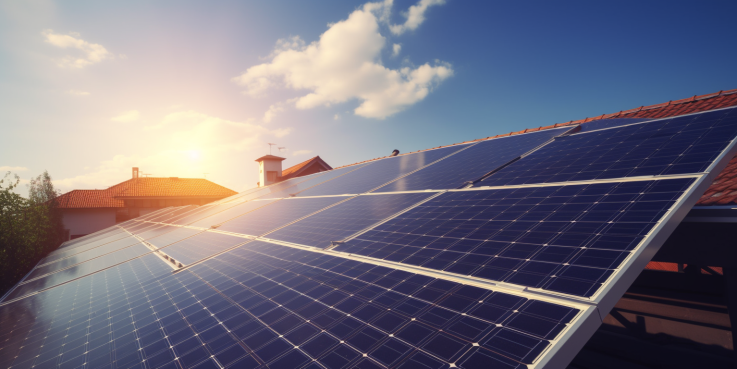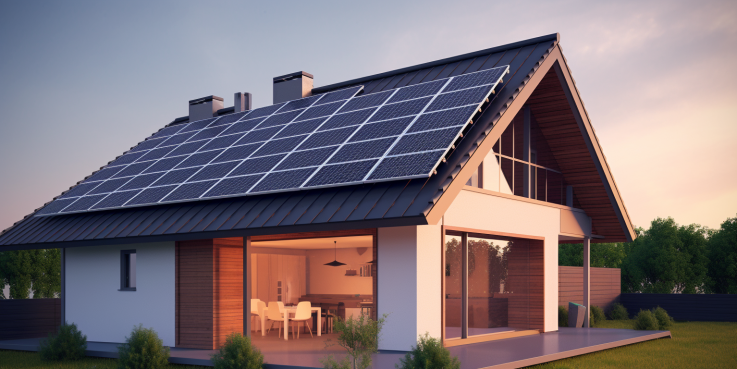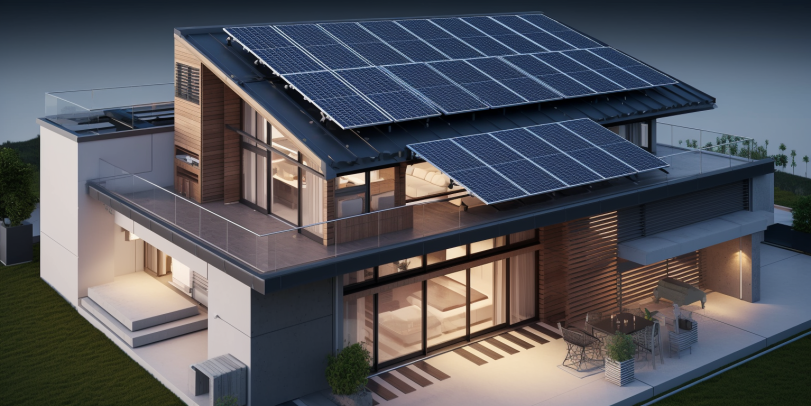
According to recent data, the number of solar panels required to meet a home’s electricity needs is influenced by various factors. These factors include the location of the home, the efficiency and rated power of the panels, and the individual energy consumption habits.
On average, a typical household requires around 17-21 solar panels to cover 100% of its electricity usage. The calculation for determining the number of panels involves dividing the system size by the production ratio and panel wattage.
It is important to consider factors such as sunlight exposure and production ratio, as areas with less sunlight may require larger solar array systems or more efficient panels. For instance, California typically needs a 6.8 kW system, while Massachusetts requires an 8.4 kW system to meet their electricity needs.
It is worth noting that the cost of solar panels is not taken into account in the calculation of panel quantity.
In this article, we will explore the various factors that affect the solar panel needs for home electricity usage.
Key Takeaways
- The number of solar panels needed for a home depends on factors such as geographic location, panel efficiency, panel rated power, and personal energy consumption habits.
- On average, a typical home requires 17-21 solar panels to cover 100% of its electricity usage.
- The calculation for determining the number of solar panels involves dividing the system size by the production ratio and panel wattage.
- Areas with less sunlight may require larger solar array systems or more efficient panels to meet electricity needs.
Factors for Calculating
The number of solar panels needed for a home’s electricity usage can be determined by factors such as geographic location, panel efficiency, panel rated power, and personal energy consumption habits. Cost considerations play a crucial role in determining the number of solar panels required for a home.
Factors like the initial cost of solar panels, installation charges, and maintenance expenses can influence the decision. Additionally, the geographic location impact is another essential factor to consider. Areas with higher sunlight exposure require fewer solar panels compared to regions with lower sunlight. This is because more sunlight allows for greater electricity production, reducing the number of panels needed.
On the other hand, areas with less sunlight may require a larger solar array system or more efficient panels to achieve the desired electricity output. Thus, considering both cost and geographic location impact is vital in determining the number of solar panels needed for a home.

Number of Solar Panels
Geographic location, panel efficiency, and personal energy consumption habits play significant roles in determining the required quantity of solar panels for optimal power generation. To accurately calculate the number of solar panels needed, several factors must be considered.
-
Solar panel efficiency: The efficiency of solar panels refers to the amount of sunlight they can convert into electricity. Higher efficiency panels require fewer units to generate the desired amount of power.
-
Geographic location and sunlight exposure: Areas with ample sunlight exposure can generate more electricity with fewer panels compared to regions with less sunlight. The amount of sunlight a location receives affects the overall system size needed to meet electricity demands.
-
Personal energy consumption habits: The amount of electricity a household consumes also influences the number of solar panels required. Homes with higher energy consumption may need more panels to cover their electricity needs.
By considering these factors, homeowners can determine the appropriate quantity of solar panels necessary to meet their electricity requirements efficiently.

Ideal Solar Panel Setup
To optimize power generation, it is important to consider the ideal setup for solar panels in terms of geographic location, panel efficiency, and personal energy consumption habits.
Solar panel efficiency refers to the ability of the panels to convert sunlight into electricity. Higher efficiency panels are able to generate more electricity from the same amount of sunlight.
Geographic location plays a crucial role in determining the ideal solar panel setup. Areas with ample sunlight throughout the year require smaller solar arrays or less efficient panels to meet electricity needs. On the other hand, regions with less sunlight may necessitate larger solar arrays or more efficient panels to achieve the desired power production.
By considering both solar panel efficiency and geographic location, homeowners can determine the optimal setup that maximizes electricity generation from their solar panels.

